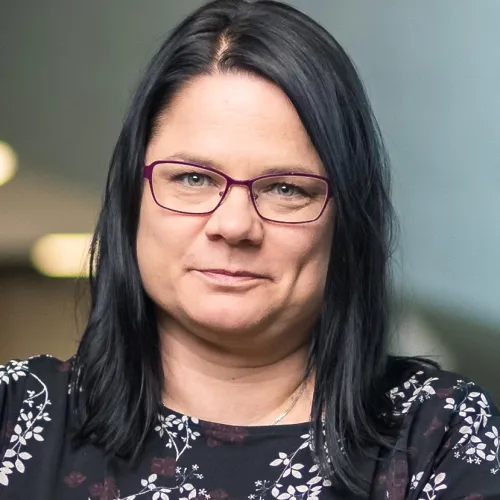According to Petra Pekkanen, head of degree programme in industrial engineering and management, degree programmes primarily aim to educate professionals with the up-to-date knowledge and skills companies and organizations currently need.
By responding to the career survey, LUT graduates can give feedback on their studies and describe how their transition to the professional world has gone. This autumn, it is time for those who completed their master’s degrees in 2020 and doctoral degrees in 2022 to share their experiences.
Alumni responses help degree programmes develop their educational content and ensure that education remains relevant.
“Alumni feedback helps us at the university understand whether our programmes provide the skills that are needed in the workplace. The survey offers direct insights from our alumni about their academic experience and the career paths they’ve pursued,” Pekkanen explains.
Valuable professionals for the job market
In the industrial engineering and management programme, alumni career data is closely monitored, and according to Pekkanen, the graduate employment rate has consistently been at high level.
“Graduates from industrial engineering and management find employment easily. The responses also confirm that our alumni take on a wide variety of roles. The survey results show a diverse range of employers and job types,” Pekkanen says.
The goal is to maintain this positive trend in the future as well.
“The numbers of industrial engineering and management students is growing rapidly, so I’ve been closely monitoring employment and salary levels to make sure they remain stable and don’t indicate oversupply. We want our graduates to be valued professionals in the job market,” Pekkanen summarizes.
The career survey gives alumni a genuine opportunity to influence the content of education. Feedback from alumni leads to concrete changes whenever justified and possible.
“We look closely at alumni responses to see if they point to issues we need to address or confirm development needs we’ve identified. For example, one clear request we’ve implemented was the possibility to earn various certificates during studies,” Pekkanen notes.
Active collaboration with companies throughout studies
A central idea of the industrial engineering and management programme has long been that students collaborate closely with companies during their studies. This industry collaboration has a positive impact on employment opportunities after graduation, although there is still room for improvement.
“Based on the career survey results, it’s clear that despite the high employment rate, we need to improve job opportunities for our international talents. We’ve been working on this systematically,” Pekkanen says.
The situation is not yet ideal, but progress is being made step by step. In addition to language skills, networks play a key role.
“We’ve invested in ensuring that all students can build connections with the business world and grow their networks through company visits and project courses. In addition, nearly all industrial engineering and management students complete their master’s theses in companies, which makes the transition to the professional world smoother,” Pekkanen explains.
Nearly all industrial engineering and management students complete their master’s theses in companies.
Alumni career paths provide students important examples of the diverse opportunities available with a degree in industrial engineering and management. At the same time, the dialogue between the programme and alumni grows stronger.
“Industrial engineering and management offers a wide range of options, so our students develop expertise across many different areas. That’s why it’s incredibly valuable to hear where we’ve succeeded and where there’s still room for improvement,” Pekkanen emphasizes.

Career survey in a nutshell
- LUT University collects annual feedback from graduates as part of the national Aarresaari network’s career survey.
- This autumn, the survey targets those who completed their master’s degrees in 2020 and doctoral degrees in 2022.
- The response period runs from 1 October to 8 December 2025.
- Alumni will be contacted personally via email, text message, or letter.
Alumni insights from the field
According to Pekkanen, dialogue with alumni is increasingly important as global trends are also shaping the professional world and its demands.
“Global trends such as the development of artificial intelligence, digitalization, and sustainability also influence universities and degree programme contents. That’s why we need continuous input from our alumni on what knowledge and skills they would have needed when entering the workforce,” Pekkanen says.
We need continuous input from our alumni on what knowledge and skills they would have needed when entering the workforce.
Alumni are in a unique position to observe and report on ongoing changes and their impacts.
“Artificial intelligence stands out as the most significant and recent shift we’re facing. We’re very interested in hearing individual experiences about how AI is affecting job roles and company operations and how it’s fundamentally transforming the job market,” Pekkanen shares.
Responding to the career survey is an easy way for alumni to give back to the university. Every response matters and affects the university’s funding.
“It would be fantastic if as many alumni as possible shared their views and experiences in the open-ended sections of the survey, as these responses provide direct insight into real-life situations and areas for development,” Pekkanen encourages.
More information:







